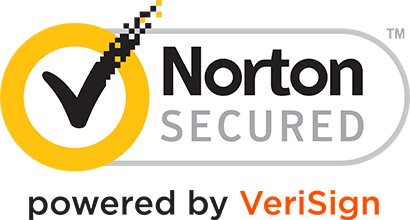- Log In
- Support
- Company
- Contact Us
- Live answers @ 1-888-532-4794
5 Types of Answering Service Jobs
Many businesses lean on answering services to help streamline customer communication and increase customer satisfaction. Answering services provide a group of real people to answer calls on behalf of companies 24/7. However, not many businesses really understand the inner workings of an answering service, and who they rely on to handle their businesses communications day in and day out. Answering services are more than just receptionists answering calls. There are a lot of moving parts working together to achieve one common goal; to help grow your business through exceptional customer service. Let’s take a look at the top 5 key personnel from your answering service and why they are so important.
#1. The Operators
Operators, or virtual receptionists, are the front line of your business at the answering service, which means they are often the first impression your customers have. If your customers can’t reach a live voice when they call and are either playing phone tag or waiting (and waiting) for a call back, they’re going to get the feeling like they don’t matter. Callers who are greeted with a warm, friendly voice who can help answer their questions are 70% more likely to become paying customers over callers who reach an impersonal answering machine.
Being your business’s voice takes more skill than being able to speak. Operators utilize a variety of different skills and easily adapt to many scenarios. For example, one moment they could be speaking to a senior citizen who may need the operator to patiently help them understand a specific insurance policy, while the next call could be someone seeking legal assistance regarding delicate matters. And of course, you can’t forget the phone calls from angry customers who just want their issue resolved now. Operators have:
- Excellent listening and communication skills
- Have an amazing phone demeanor
- Can be empathetic when the situation calls for it
- Have a strong attention to detail and are able to document calls and relay messages perfectly
- Have a great short term memory if they need to document calls after the caller has hung up
- Able to keep a steady composure and calmly diffuse even the most tense situations
- Have intuition and perception to quickly determine the needs of each individual caller
Agents have to learn to maintain their composure in tough situations and decipher what the caller needs to help them as quickly and efficiently as possible. This job can be tough but it can also be very rewarding. To learn more about what makes up a good operator, check out our virtual receptionist interview!
#2. The Programmers
Simple programming changes, like swapping one number for another, can usually be done by the operator while you’re on the phone. However, a change like adding a new script path or programming a complex on-call scenario is usually done by the programmers. A successful answering service programmer is:
- Proficient in the specific programming and/or coding terminology the answering service uses
- Able to come up with creative solutions to build a script that will work for the operators as well as the customer
- Skilled at time management and able to prioritize their workload to the account changes that are urgent, and ones that can wait
- A great communicator and able to work with the support team to clarify programming notes to make sure what the client is asking for is actually something the answering service can do effectively
If you have concerns with the quality of your calls or how much usage you’re accruing, programmers are great at offering suggestions that will help cut down on calls and and usage. As an outsider, you may be quick to set up your call script to match your in-house protocols. However, the programmers at your answering service will know best if certain call handling procedures will work or not and how to come up with a solution that is suitable for everybody.
#3. The Team Leads
Operators are people. People will make mistakes from time to time, which is why Team Leads are so important. The Team Leads are typically responsible ensuring the quality of a small operator group. One way they do this is by pulling random calls for quality reviews and helping operators improve by offering advice and additional training classes. When things get busy, they can don the operator hat and hop on the phones as well. However, their main goal is to make sure the operators are always at their very best! Team leads are responsible for:
- Keeping their team of operators on track
- Answering questions and helping operators solve problems
- Handling escalations for irate callers before a floor supervisor needs to be involved
If you’re ever concerned with how a call was handled, the Team Lead is the go-to person to help get to the bottom of the issue. A change in the scripted call handling may be warranted or the operator may need to receive some additional training. Essentially, the Team Lead is there to oversee their specific group of team members and make sure they are operating like a well-oiled machine.
#4. The Floor Supervisor
Similar to a Team Lead, the Floor Supervisor is crucial in day to day operations. Floor Supervisors typically have years of call center experience and understand what it takes to be an operator, as well as a manager. They oversee everyone, operators and Team Leads alike, and are the last line in phone escalations to diffuse tough situations. When calls are escalated to a floor supervisor it is because the operator and the team lead have tried all they can to appease the customer, but they need backup. Ultimately, the floor supervisor accepts responsibility for everyone they employ. They will always work with you to come to a solution that is best for both parties and improve your overall quality of service. Each day, the floor supervisor:
- Provides further training opportunities for employees
- Analyzes data from days, weeks, and even months prior to ensure they are always staffed accordingly and meeting call center goals
- Identifies operational issues and works to come to a solution
- Monitors agent performance and provides coaching as needed
#5. The Support Team
The answering service customer support team is a group of problem solvers and help desk gurus. If they are troubleshooting a call, they evaluate where caller interactions went wrong and who of the above choices needs to be tapped in to help rectify the situation. If they are asked a question, like “how can I update my script?”, they have a strong knowledge of the system you’re using to lend a helping hand. A lot of the time, customer service works as a team with one or all of the aforementioned departments to resolve any issue. They bring ideas and creative solutions to the table as well. If you aren’t happy with your script, start with support! They handle hundreds of accounts every day and will have a handful of tips and tricks, suggestions and advice on how to create the best answering service experience and ultimately help your business relationship succeed. The support team is responsible for:
- Handling customer communication
- Making updates that don’t require an escalation to the programmers
- Suggesting script reviews and updates
- Diffusing situations where customers are angry
- Multitasking and handling multiple channels of communication including email, phone support and live chat
- Engaging in ongoing training about the systems they are using
Every answering service of course has their own hierarchy and their own troubleshooting process. This overview consists of the “must have” roles in the answering service business, and why they are so important to have. When you use a 24/7 answering service, it’s important to know who is behind the scenes at all times. Assembling a quality answering service team requires people who are patient, kind, adaptable, thick-skinned, creative, and quick thinking! With the team described above, you can’t possibly go wrong!
Categories
- Advice (32)
- Answering Service 101 (18)
- Best Practices (10)
- Call Center Jobs (6)
- Call Center Software (20)
- Comparison (2)
- Customer Service (30)
- Funny (31)
- Holidays (19)
- Industry Hacks (19)
- Infographics (53)
- International (1)
- Medical (8)
- News (12)
- Phone Etiquette (2)
- Phones (14)
- Pricing (8)
- Quizzes (3)
- Receptionist (11)
- SAS Products (29)
- Scripting (4)
- Services (5)
- Small Business (25)
- Starting Up (7)
- Tips and Tricks (19)
- Uncategorized (1)
- Videos (19)
- Workplace (6)
Recently writen
- Call Center Script Best Practices: Advanced Script Block Tips to Optimize Your Answering Service
- January 2025 Release Notes – Adjustments to Call Details Timeline, New Scripting Updates, Live Transcription, and more!
- April 2024 Release Notes – Voicemail Greetings, Ability to Access Websites With a Username and Password, and more!
- March 2024 Release Notes – New Add-On, Settings Revamp, and more!
Follow Us
How about a demo?
We'll show you how our web portal works and answer any questions you have about SAS.
Schedule a demo







